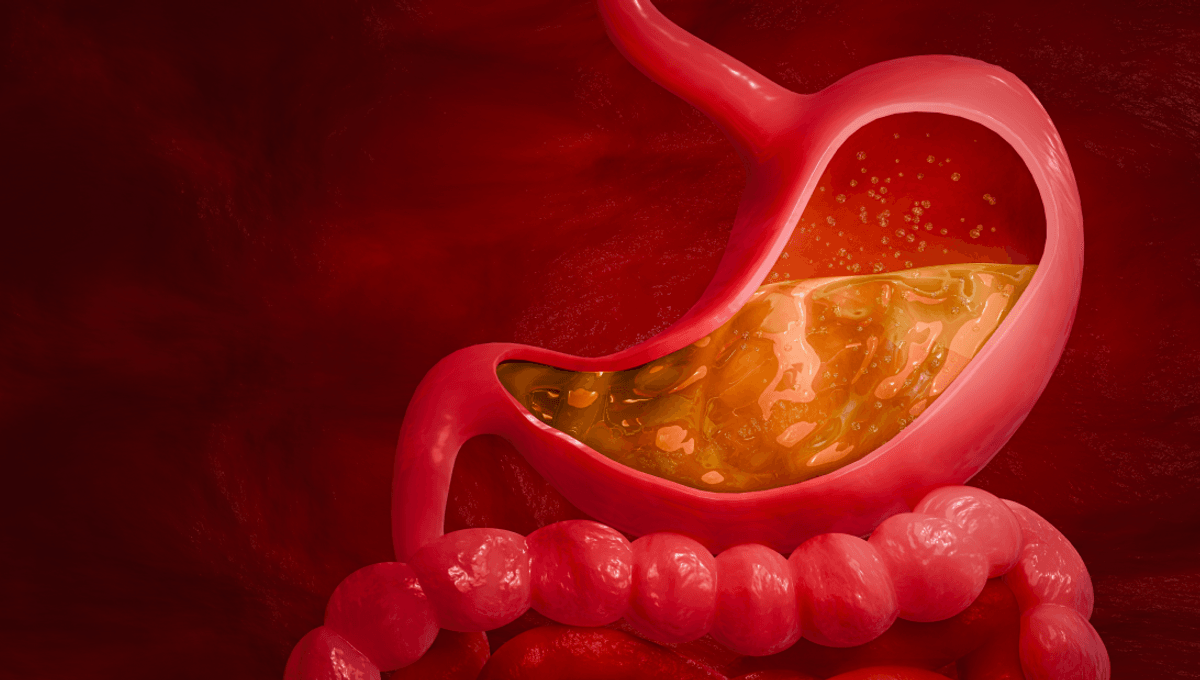
Your stomach contains hydrochloric acid, a highly corrosive chemical compound that can dissolve certain metals and would spell seriously bad news anywhere else in (or on) the body. Its purpose is to create the ideal environment for digestive enzymes to break down food and kill off bacteria, and yet despite its ferocity as an acid, it doesn’t eat our own tissues. Why?
Why doesn’t stomach acid destroy stomach tissue?
Our internal garbage disposal doesn’t get destroyed by all the acid thanks to mucus. Lots and lots of mucus. That mucus is formed of big glycoproteins known as mucins that have sugar molecules attached to them, such as N-acetylglucosamine and sialic acid, which help make the mucus slippery and resistant to digestion.
Those mucins then club together to create two genres of mucus in our stomach; a thick, sticky layer that remains fixed to the stomach lining, and a looser, gel-like layer that slips around. It’s this looser layer where the “good bacteria” that make up our gut microbiome live.
Stomach acid, if given the opportunity, would happily digest our own tissues. It’s released by parietal cells that are tucked within folds along the tunica mucosa lining of the stomach. When it gets squirted out it has a punchy pH of as low as 0.8 (which given 7 is neutral and 0 is as acidic as it gets, is pretty damn powerful).
The acid gets mixed up with other stomach secretions so it levels out at around pH 1–3, says The Institute Of Human Anatomy. Thankfully, all that mucus we mentioned acts as a physical barrier that keeps the acid separate from the lining of your stomach. As well as creating a physical barrier, the mucus contains bicarbonate that can neutralize acid. Sound familiar? That might be because a lot of heartburn medications contain bicarbonate because it’s so good at settling the burn when stomach acid gets in places it’s not supposed to be.
What does stomach acid do to the body?
It’s pretty remarkable to think that it’s effectively fancy jelly that keeps us safe, but there are certain parasites and bacteria that can weaken our mucus barrier. When this happens, bacteria can sneak through to the stomach tissue, and this is a key contributor to gut inflammation and certain gastric diseases.
Some of the most severe ulcers can cause internal bleeding when they form at the site of a blood vessel, and if an ulcer perforates it can result in peritonitis as acid leaks into the abdominal cavity. This serious complication of peptic ulcer disease is considered a medical emergency, but there’s a much more common way digestive acid can sneak out of our stomachs.
Anyone who’s ever experienced acid reflux has felt the unpleasant consequences of stomach acid breaching the lower esophageal sphincter. This acts like a valve that stops the food we’ve eaten from re-entering the esophagus, but it can get leaky as a result of alcohol consumption and smoking, among other things.
So, if you’ve ever found yourself sneering at the word mucus, it’s time to buck up your ideas and give the gooey stuff some respect. Without it, we’d be in big trouble.
Source Link: Stomach Acid Can Dissolve Metal, So How Does It Stay In Our Stomachs?